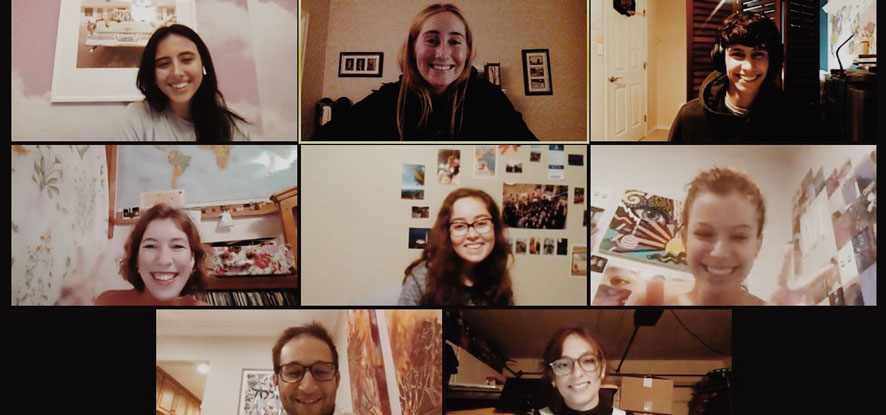Uniting Religious Communities at Pepperdine
This past spring semester I participated in the Jewish Culture Club convocation hosted by Pepperdine's Rabbi in Residence, Ari Schwarzberg. We discussed everything from Jewish culture to religious holidays—there were a lot of questions on Purim—but the most impactful part of the convocation arose from the conversations our group and Rabbi Schwarzberg had surrounding the Hebrew Bible. Those who knew me well enough to know my personal Christian background and my focus on Islamic studies in the International Studies and Languages Division at Pepperdine asked the natural question, why Jewish culture convocation?
My answer, usually, was twofold; first, it was immensely powerful to engage in the different ways that I, a Christian, and Rabbi Schwarzberg, a devout Jew, interpret scripture, and the conversations challenged my own understanding of the biblical text. And second, to have an understanding of Judaism uncolored by the media or distilled through popular society was greatly beneficial to my ambition to work in the field of international policy.

Finding Commonalities
Participating in the Jewish Culture Club convo introduced me to the *Glazer Institute for Jewish Studies: an organization that partners with speakers, scholars, and students to encourage students to reconsider their own traditional understanding of the world and religion, and to explore with an open mind the intersections between Judaism and Christianity.
To examine the core beliefs that shape our view of the world is to understand the responsibility we have as global citizens for choices we make, and ideally to recognize the defects and presumptions of our own perspective. Faith is at the heart of humanity, guiding culture, politics, the expression of rights, and so much more—Pepperdine's commitment to serving as a Christian institution underscores this, but the Glazer program allows students to go beyond the Malibu bubble in a religious sense.
Broadening Horizons
Interested in the prospect of an organization that would help me broaden my perspective on faith relations, I applied and was accepted into the Brenden Mann Foundation Scholars program, which links Seaver students to the work that the Glazer Institute does.
Specifically, the Brenden Mann Foundation Scholars program allows students to attend Glazer-sponsored events (most recently, we held a Zoom session in which a cantor schooled us in High Holy days), take a class that describes the interplay between some aspect of Jewish culture and another subject or discipline, and ultimately engage with the Jewish community in both an academic and on a personal level.

Exploring Faith
Although I've participated in the program for only a short time, I already realize the benefits of engaging in conversation with others on seemingly different fundamental viewpoints, and learning from each other in the process. I am also seeing how important it is for a Christian university to actively pursue academic and individual connections with the Jewish community.
This engagement promotes a pragmatic and open-hearted perspective toward Judaism, one of the major faiths represented in our world today, and helps to guide students in exploring their own faith, whatever that may be. The importance of understanding the special relationship between Christianity and Judaism cannot be overstated, both in the context of the faiths' shared histories and traditions, as well as from the standpoint of modern world politics.
No matter where you are on your college journey (I joined the Brenden Mann Foundation
Scholars program as a junior), if this is an experience that sounds enriching or interesting
to you, I would recommend you start where I did—attend a Jewish culture convocation,
or attend one of the Glazer events via Zoom. We would love to meet you!
*The Glazer Institute for Jewish Studies is no longer at Pepperdine University.